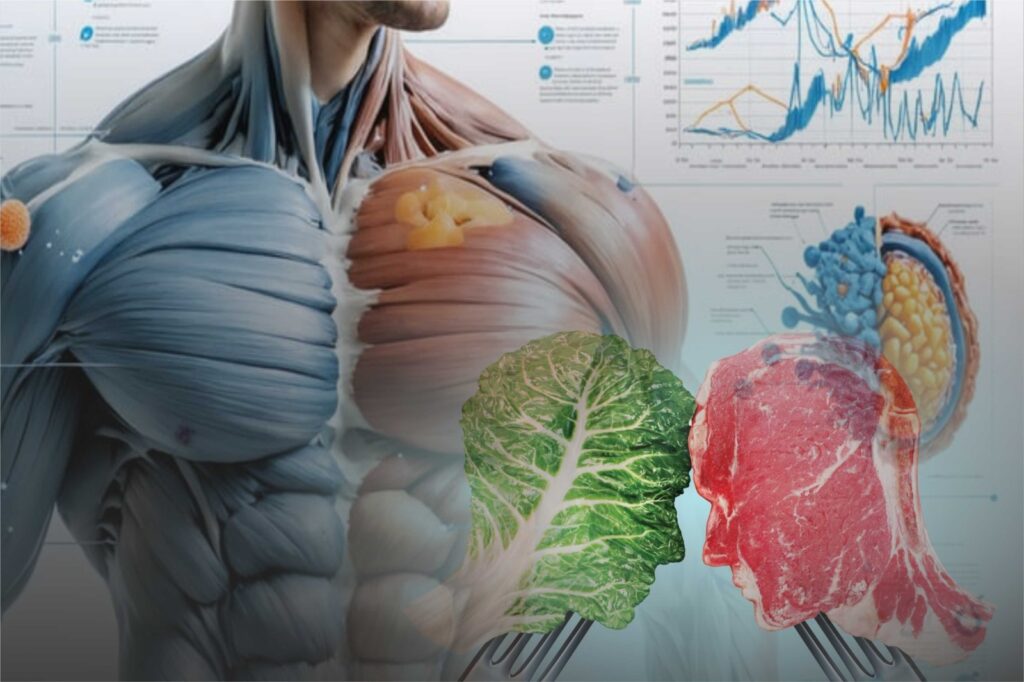
Can plant-based protein build muscle as effectively as meat? A recent study thinks it’s possible.
Researchers at the University of Illinois at Urbana-Champaign have found that being omnivorous or vegan makes no difference to muscle building after weight training. The research also disputes two other common assumptions: if evenly spreading protein intake across the day matters, and whether a sufficient protein intake daily affects these factors.
“The longstanding belief or the current dogma was that animal-based protein sources were better, particularly for the muscle-building response,” said Nicholas Burd, a professor of health and kinesiology at the University of Illinois Urbana-Champaign.
Also Read | How junk food is bad for your digestive health
Burd argued that previous researchers typically measured muscle protein synthesis after a single meal, which often showed animal protein as more effective. The researcher said that the short-term data doesn’t reflect the effects of a balanced vegan diet.
The team recruited 40 healthy adults between age 20 and 40. The participants ate a standardised diet for a week to balance the nutrition. Then they were randomly assigned to either a vegan or an omnivorous diet for the trial. The participants were further divided to split their protein intake throughout the day at different intervals. Everyone did muscle-strengthening workouts every three days and wore accelerometers to track physical activity outside the lab.
In the omnivorous diet, the protein came from animal meat like chicken, goat, fish, beef, lamb, and pork. The vegan diet included meat made entirely from plants.
The team found no significant differences in muscle protein synthesis between the two groups. Researchers also found that protein distribution across the day had no effect on the rate of muscle building.
Now, Burd says, if anyone asks him what’s the best type of food they should eat for muscle building, he’ll tell them: “It’s the kind you put in your mouth after exercise. As long as you’re getting sufficient high-quality protein from your food, then it really doesn’t make a difference.”








